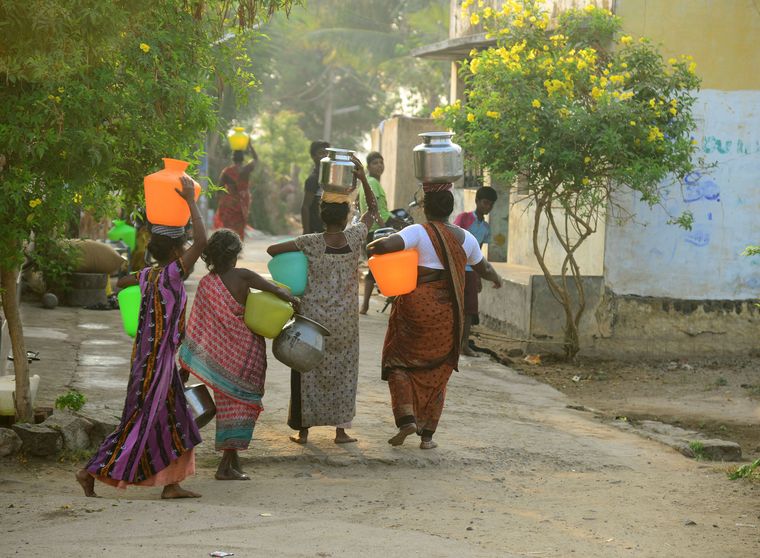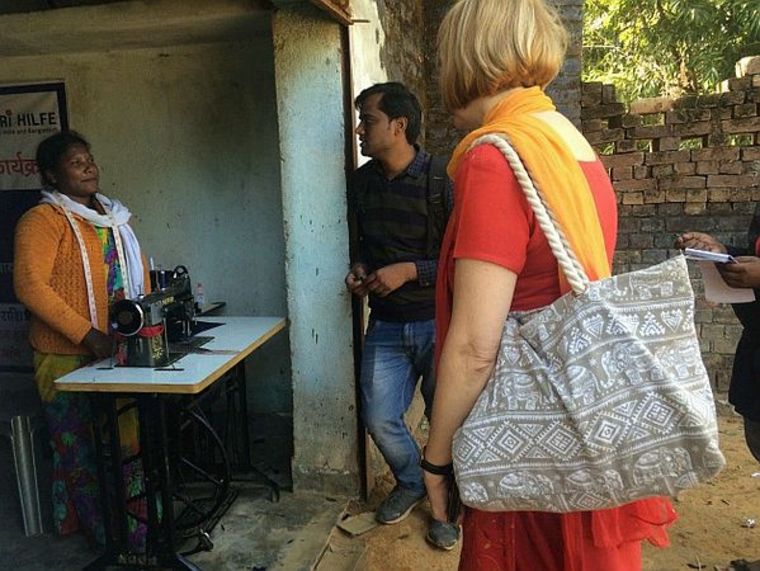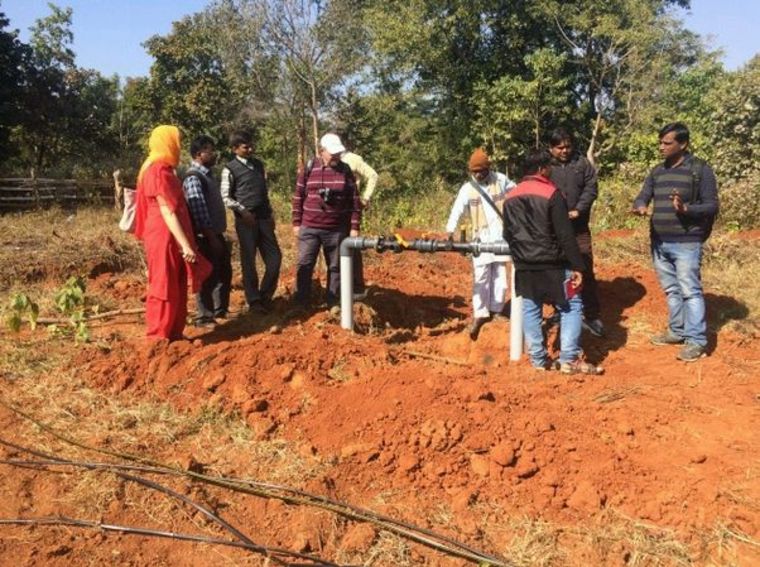Building resilient communities and ecosystems in India
A PATH TO GUARANTEED SELF-SUFFICIENCY
If you skim through the current media reports in India, you get the impression that the economy is on an upward trajectory . If you look more closely however, you will notice the other side of the upswing: three quarters of the Indian population does not benefit in a major way from the rapid economic development. According to the UN Human Development 2017, 30 percent of the population in India live in extreme poverty; especially, in the countryside, the poor often live on less than $ 1 a day. As much as 70 percent have to make do with less than $ 2 a day. That is over 800 million people in total. The number of people who leave their homes out of necessity – and then migrate to a metropolis is rising year after year with a rising number of farmer suicides as well. It is estimated that more than 130,000 smallholder farmers commit suicide in India in a year because they have lost hope about their future. The question therefore is, of what help is an economic miracle when three quarters of the population do not benefit from it?

Major challenges
One of our big goals is to make villages self-sufficient, so that people can find opportunities to earn their livelihoods in their own villages. It is a big challenge. However, it is possible, as our project in Jharkhand, brings out the success of the goal mentioned above.
Sujaya Dangwar, the Jharkhand project manager of our partner organization Watershed Organization Trust (WOTR), reports: “In cooperation with ANDHERI HILFE, we have developed a model project to help families in 16 villages. In this region, before we started our work, the chances of earning a livelihood were negligible. Periods of drought and unsafe monsoon rains made the cultivation of the fields and livestock farming increasingly impossible. There were no opportunities for alternative income. Many families had to leave their homes. Now, many have returned. This is because, they are able to find work because of our project interventions and build their futures with their own hands.”
Traditional practices are merged with modern knowledge and practices to build structures in villages. Everyone participates to offer voluntary contribution to build structures. They build walls and pits that prevent rainwater and fertile soil from getting eroded and washed away. Farm ponds are deepened and trees are planted too. In the months when it does not rain, fruits, vegetables and cereals can be cultivated. The interventions have had a positive influence on the diet of these people as well. The diet of these families has changed sustainably – and with it their health has also improved, especially the health of the children.
Ravi, one of the beneficiaries of WOTR’s work in Jharkhand. He speaks with pride about a small farmers’ cooperative (in Bamhani village) that was started with WOTR’s assistance. “It was hard work to get state recognition for our cooperative. But now we can jointly buy cheap seeds and we can also market our earnings together – at a much better price than before!”
Savita, on the other hand, is an entrepreneur. “I could get training as a seamstress. Then, I built a store right next to our house to stitch clothes. We can find customers easily as it is located on the road. I thought to myself, I can expand my business and I did. I now sell everything that is needed for daily consumption in our homes in the same store. I also sell sweets for the kids of the village!”

Indernath Singh, a farmer in Ghagari village, has 20 acres of land. He is about to turn a piece of fallow land into a mango plantation: “I have never been able to cultivate anything on this piece of land. But now, with support from this project, I’ve cleared it, planted mango seedlings and installed drip irrigation. I have pioneered this irrigation method in our villages.”
These are just a few encouraging examples that I saw in my recent project visit. People are starting to earn their own livelihoods, thus getting opportunities in their home country with our initial help.

By Elvira Greiner. Elvira Greiner is President ANDHERI HILFE.
Translated from German by Pragati Khabiya
Please donate for this project in Jharkhand / India!
online donation form
Our donations account:
IBAN: DE80 3705 0198 0000 0400 06, BIC: COLSDE33

